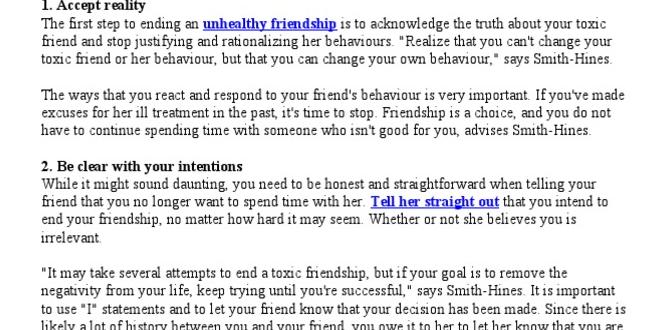When your partner has cheated, finding the best relationship advice for women after cheating is crucial. This guide offers proven, actionable tips to help you navigate betrayal, rebuild trust, and decide the future of your relationship with clarity and strength.
Discovering your partner has been unfaithful can shatter your world. It’s a pain that cuts deep, leaving you with a whirlwind of emotions. You might feel devastated, angry, confused, or all of the above. It’s completely normal to struggle when trust is broken. But you are not alone, and healing is possible. This guide is here to offer you practical, step-by-step advice designed to help you cope, understand, and make informed decisions about your relationship’s future. We’ll break down the process into manageable steps, focusing on your emotional well-being and empowering you to move forward.
Navigating the Aftermath: Your First Steps After Infidelity
The immediate aftermath of discovering infidelity is often the most disorienting period. Your reality has been turned upside down, and it’s natural to feel lost. Taking thoughtful, deliberate steps can help you regain a sense of control and begin the healing process. This isn’t about rushing to judgment but about creating space for yourself to process and understand.
1. Prioritize Your Emotional Well-being
Your feelings are valid, and you deserve to feel them without judgment. This is a time to be exceptionally kind to yourself. Think of it like recovering from an injury; rest and care are essential. What makes you feel safe and comforted right now? Is it talking to a trusted friend, spending time in nature, reading a comforting book, or engaging in a hobby you love?
- Allow yourself to grieve: It’s okay to feel sadness, anger, and confusion. Don’t try to suppress these emotions.
- Seek immediate support: Lean on your closest, most non-judgmental friends or family members. Choose people who will listen without trying to “fix” you or push you towards a decision.
- Practice self-care: Even simple acts like getting enough sleep, eating nourishing food, and taking a warm bath can make a difference. Consider mindfulness or meditation – even a few minutes a day can help.
- Journal your thoughts: Writing down your feelings can be incredibly therapeutic. It helps to externalize what’s going on inside and can bring clarity.
2. Gain Clarity: What Do You Need to Know?
Before you can make any decisions, you need factual information. This is not about interrogation for the sake of punishment, but about understanding the scope and nature of what happened. Knowing the facts, as uncomfortable as they may be, is a necessary step for healing and decision-making.
- Communicate your need for information: When and if you feel ready, communicate to your partner that you need to understand what happened.
- Ask specific questions: What happened? When did it start? How long did it last? Was it a one-time occurrence or ongoing? What led to it?
- Set boundaries for information flow: You don’t need to know every single detail if it’s going to be excessively retraumatizing. Decide what level of detail you can handle.
- Consider professional help: A therapist can guide you through this process of gathering information in a healthy way, ensuring your emotional safety.
3. Avoid Hasty Decisions
In the heat of emotion, it’s easy to make decisions you might later regret. Your mind is likely racing with possibilities – leaving, staying, confronting, withdrawing. Give yourself permission to breathe and to not have all the answers right now. The shock of infidelity creates an intense emotional state, and major life decisions are best made when you are as calm and clear-headed as possible.
- Take a “pause” period: If possible, create some physical or emotional distance to think without pressure. This might mean staying with a friend or family member for a few nights.
- Focus on the present: One day, or even one hour, at a time. What is the most important thing for you to do right now for your well-being?
- Resist external pressure: Your friends and family may have opinions, but ultimately, this decision is yours.
Understanding the Betrayal: Why Did This Happen?
Questions of “why” are inevitable after infidelity. Understanding the underlying reasons – without excusing the behavior – can be a crucial part of processing the event and determining the path forward. It’s important to remember that infidelity is rarely about one person’s inherent flaws but often stems from complex issues within the individual and the relationship.
Common Factors Contributing to Infidelity
While each situation is unique, research indicates several common themes that can contribute to infidelity. Understanding these can provide context, though it does not justify the act.
| Factor | Description | Implication for Understanding |
|---|---|---|
| Unmet Needs | One or both partners feel their emotional, physical, or psychological needs are not being met within the relationship. This can include lack of intimacy, attention, appreciation, or emotional connection. | This doesn’t excuse cheating but highlights potential relationship deficits that need addressing if the relationship is to survive. |
| Individual Insecurities & Immaturity | The unfaithful partner may be struggling with their own self-esteem, seeking validation, or dealing with unresolved personal issues, such as fear of commitment or a need for control. | Focuses on the individual’s internal issues rather than blaming the partner who was cheated on. |
| Relationship Dissatisfaction | A general unhappiness or longing for something “more” that isn’t being found in the current partnership. This can be linked to boredom, lack of excitement, or a feeling of drifting apart. | Suggests that the relationship itself, or the way it’s being maintained, is a significant factor. |
| Opportunity & Temptation | Sometimes, infidelity occurs due to readily available opportunities or a specific tempting situation, especially if defenses are down or personal boundaries are weak. | Highlights that while opportunity plays a role, it’s often the underlying vulnerabilities that make someone susceptible to it. |
| Communication Breakdown | A pervasive lack of open, honest, and effective communication can lead to partners feeling disconnected and misunderstood, creating fertile ground for external attachments. | This is a critical area for rebuilding if the couple decides to work on the relationship. |
It’s vital to approach this understanding with self-compassion. You are not responsible for your partner’s choices. However, if you wish to explore reconciliation, understanding the “why” can be a bridge toward addressing deeper issues within the relationship dynamics. Resources like the American Psychological Association’s stance on infidelity can offer further insight into the psychological aspects.
The Role of Communication Breakdown
A significant contributor to marital distress and infidelity is poor communication. When partners stop talking openly about their feelings, needs, and concerns, a chasm can open between them. This silence can breed resentment, loneliness, and a sense of being unseen or unheard. If communication falters, it’s often a sign that the relationship, as a whole, is struggling.
- Difficulty expressing feelings openly.
- Avoiding difficult conversations.
- Misinterpreting intentions or words.
- A lack of active listening.
- Unexpressed needs leading to unmet expectations.
Rebuilding Trust: A Long and Delicate Process
Trust is the bedrock of any healthy relationship. When infidelity occurs, this foundation is shattered. Rebuilding trust is not a quick fix; it’s a long, intentional, and often painful journey that requires commitment from both partners. For the betrayed partner, it involves learning to feel safe again. For the unfaithful partner, it requires consistent, transparent actions that demonstrate remorse and a commitment to change.
For the Partner Who Was Betrayed
Learning to trust again after infidelity is one of the hardest things you may ever do. It’s a process for which there is no magic switch. Be patient with yourself. Some days will be good, and others will feel like you’ve taken steps backward. That’s okay and part of the healing journey.
- Acknowledge Your Pain: Your feelings are valid. Don’t let anyone minimize them.
- Define Your Boundaries: What do you need from your partner to feel safe? Be clear and assertive.
- Focus on Healing: Prioritize your mental and emotional health. Consider therapy (individual or couples), mindfulness, or support groups.
- Observe Actions, Not Just Words: Words are cheap. Look for consistent, transparent behavior that demonstrates change.
- Small Steps Forward: Rebuilding trust happens in increments. Celebrate small signs of progress.
- Be Prepared for Triggers: Certain situations, dates, or even smells might trigger memories or feelings of anxiety. Develop coping strategies.
For the Partner Who Cheated
If reconciliation is on the table, the partner who cheated has a significant role to play in rebuilding trust and the relationship. This requires a deep commitment to accountability, transparency, and change. It’s about more than just saying sorry; it’s about demonstrating genuine remorse and creating a new foundation.
- Full Transparency: Be willing to answer questions honestly and provide access to communication, social media, etc., as needed. This phased transparency shows commitment.
- Genuine Remorse: Express true sorrow for the pain caused, not just regret for getting caught.
- End All Contact: Cease all communication with the person you cheated with immediately and permanently.
- Seek Individual Therapy: Understand the underlying reasons for your actions and work on personal growth.
- Be Patient: Healing and rebuilding trust take time. Your partner is likely experiencing immense pain and may have periods of anger or sadness.
- Consistent and Predictable Behavior: Show up. Be present. Be reliable. Actions speak louder than words.
- Actively Participate in Couples Therapy: If the couple chooses this path, be fully engaged and committed to the process.
The Role of Couples Therapy
Couples therapy can be an invaluable tool when navigating the fallout of infidelity. A trained therapist provides a neutral, safe space for both partners to express their feelings, understand the dynamics that led to the infidelity, and develop strategies for rebuilding trust and connection. Resources like the Gottman Institute offer extensive resources on navigating affairs and rebuilding relationships.
- Facilitates Open Communication: A therapist ensures both partners have an opportunity to speak and be heard.
- Identifies Root Causes: Helps uncover the underlying issues within the relationship that may have contributed to the infidelity.
- Teaches Healthy Conflict Resolution: Provides tools for managing anger and hurt constructively.
- Guides Trust-Building Exercises: Offers specific strategies for rebuilding security and predictability.
- Supports Decision-Making: Aids in the process of deciding whether to stay together or separate in a healthy manner.
Deciding the Future: To Stay or To Go?
This is the ultimate question after infidelity, and there is no single “right” answer. The decision to stay or leave is deeply personal and depends on a multitude of factors, including the depth of the betrayal, the willingness of both partners to change and heal, and your own vision for your future happiness and well-being.
Factors to Consider When Making Your Decision
- The nature and duration of the affair: Was it a one-time mistake or a long-term emotional or physical relationship?
- The remorse and accountability of the unfaithful partner: Are they genuinely sorry, taking responsibility, and actively working on change?
- Your own capacity for forgiveness: Can you realistically see yourself moving past this pain and rebuilding trust?
- The overall health of the relationship prior to the infidelity: Were you happy and fulfilled, or were there existing problems?
- Your individual and shared future goals: Do your visions for the future align?
- The presence of children: While children should not be a reason to stay in an unhealthy relationship, their needs are a significant consideration.
Signs the Relationship Might Be Worth Saving
If your partner is truly remorseful, transparent, and committed to change, and if you still have feelings of love and a desire for the relationship, there are signs that suggest it may be salvageable:
- Your partner ends all contact with the affair partner immediately and permanently.
- They take full responsibility for their actions without blaming you or the circumstances.
- They are willing to be transparent and answer your questions honestly, even when it’s painful.
- They actively seek individual therapy to understand their behavior and commit to personal growth.
- They are willing to engage in couples therapy and follow through on recommendations.
- You see consistent, positive changes in their behavior over time.
- You still feel a deep connection and love for your partner, despite the pain.
Signs the Relationship May Not Be Salvageable
Conversely, some indicators suggest that trying to save the relationship might be too damaging or simply not possible:
- Your partner shows no remorse or continues to deny the extent of their actions.
- They still maintain contact with the affair partner or are unwilling to end it.
- They blame you or external factors as the reason for their infidelity.
- They are unwilling to attend therapy or make any changes.
- The infidelity has severely eroded your sense of self-worth and safety, and you don’t see a path to regaining it.
- You consistently feel anxious, unhappy, or resentful in the relationship, even with efforts to repair it.
- There is a pattern of ongoing dishonesty or disrespect.
Practical Next Steps for Moving Forward
Whether you decide to stay and work on the relationship or separate, there are practical steps you can take to ensure you are moving forward in a healthy, empowered way.
If You Decide to Stay: Strategies for Healing and Rebuilding
Choosing to rebuild after infidelity is a brave decision. It requires dedication, patience, and a willingness from both partners to create a new, stronger relationship. Focus on building a future together that is more connected and transparent than the past.
- Establish Clear Communication Rules: Agree on how you will discuss difficult topics, express needs, and manage conflict.
- Schedule Regular “Check-ins”: Dedicate time each week to talk about your relationship, your feelings, and any concerns.
- Focus on Rebuilding Intimacy: This includes emotional, physical, and intellectual intimacy. Explore what makes each of you feel connected.
- Create New Positive Experiences Together: Build new memories that are not overshadowed by the past, such as date nights, vacations, or shared hobbies.
- Continue Individual and/or Couples Therapy: Ongoing support can be crucial for navigating the long-term healing process.
If You Decide to Separate: Strategies for a Healthy Transition
Ending a relationship is incredibly difficult, especially under such painful circumstances. Prioritizing your well-being should be your top concern. Focus on creating a peaceful and respectful transition, even if emotions are raw.
- Seek Legal Counsel: If you are married or share assets and children, consult with a family law attorney to understand your rights and options. Resources like the American Bar Association can provide general information.
- Develop a Co-Parenting Plan (if applicable): If you have children, create a plan that prioritizes their emotional stability and well-being.
- Establish Financial Independence: Work towards financial stability and independence.
- Continue Therapy: Individual therapy is essential for processing the grief and trauma of the breakup and rebuilding your life.
- Create a Support Network: Lean on friends, family, and support groups.
- Focus on Self-Discovery: Use this time to reconnect with yourself, rediscover your passions, and envision your future.
Frequently Asked Questions (FAQs)
Q1: How long does it take to heal from infidelity?
There’s no set timeline for healing. It’s a deeply personal journey that depends on your individual resilience, the actions of your partner, the support you receive, and the nature of the infidelity. It can take months, or even years, to fully process the pain and rebuild trust or to grieve the loss of the relationship.
Q2: Is it possible to ever fully trust my partner again if we stay together?
Yes, it is possible for some couples.






